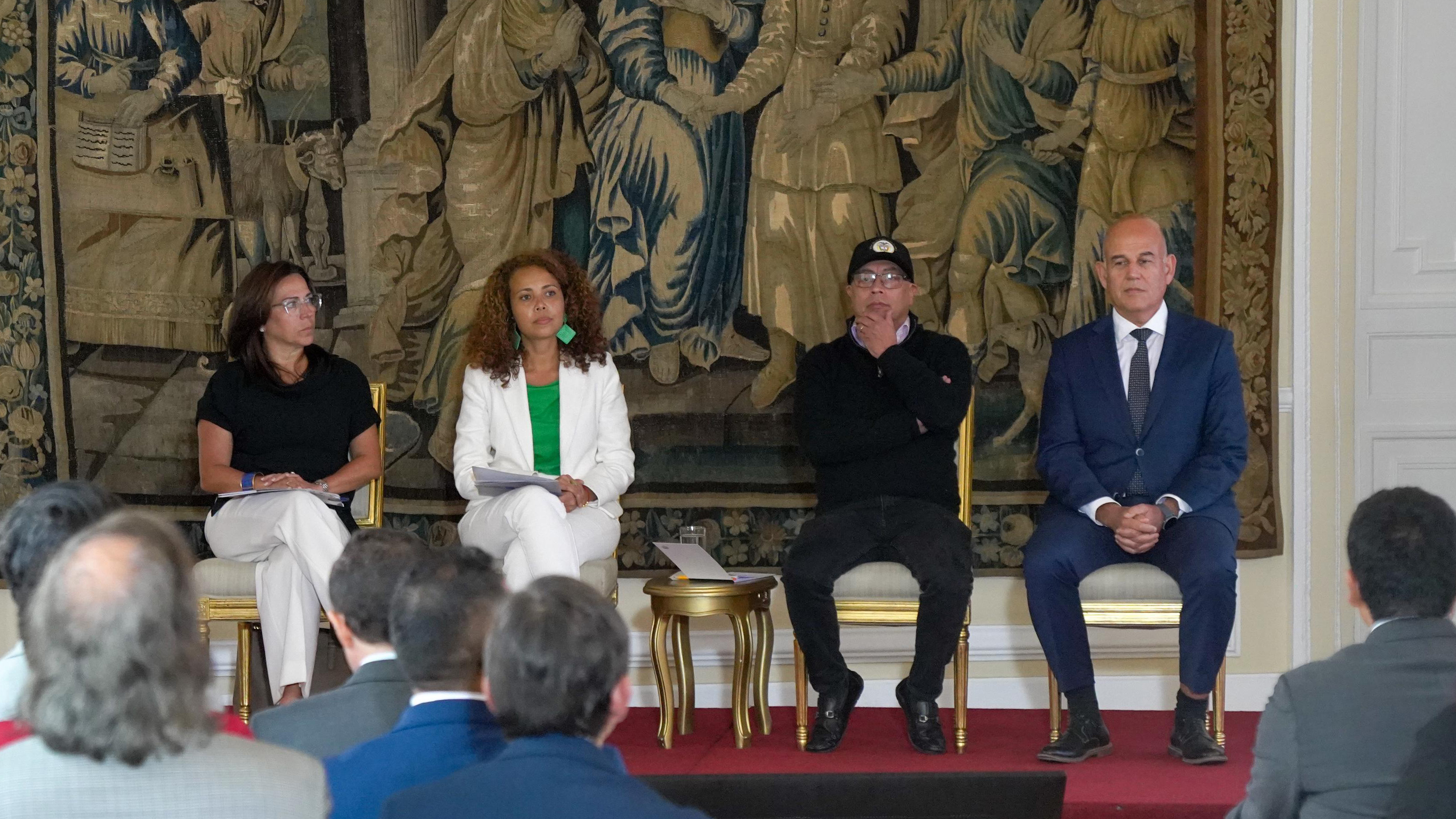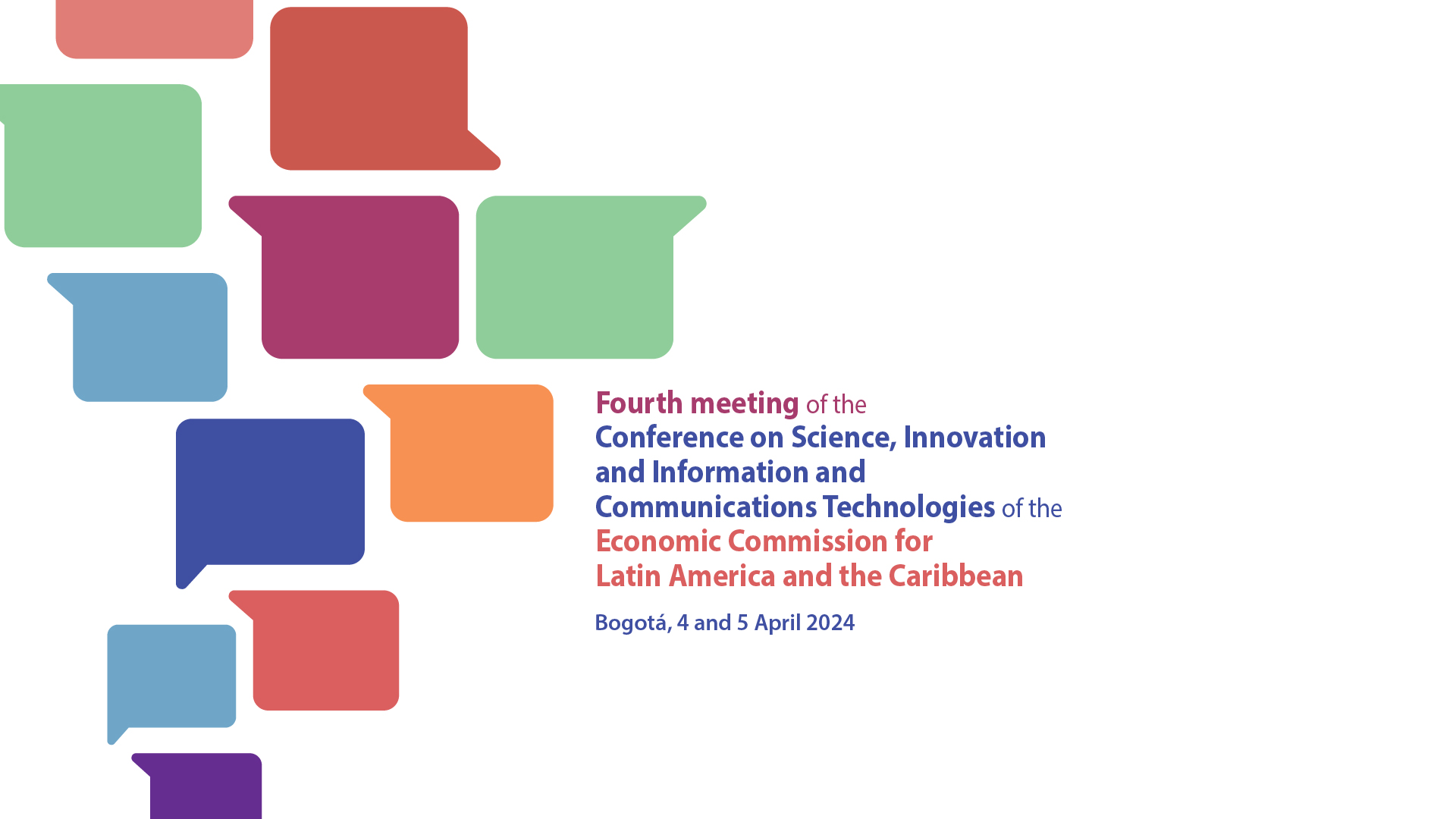Latin America and the Caribbean Must Direct Science, Technology and Innovation Efforts Towards Addressing its Productivity Challenge
Work area(s)
Colombian President Gustavo Petro led the inauguration in Bogotá of the Fourth Meeting of the ECLAC Conference on Science, Innovation and Information and Communications Technologies.

A significant share of the efforts that Latin American and Caribbean countries make in terms of science, technology and innovation (STI) must be directed towards addressing the challenge of the region’s low productivity, which largely accounts for its weak growth, according to participants in the inauguration of the Fourth Meeting of the Conference on Science, Innovation and ICTs of the Economic Commission for Latin America and the Caribbean (ECLAC), organized in conjunction with the Ministry of Science, Technology and Innovation of Colombia.
This intergovernmental gathering – which is taking place through Friday, April 5 with “science, technology and innovation for productive development” as its theme – was inaugurated at the Palacio de Nariño by the President of the Republic of Colombia, Gustavo Petro; the Minister of Science, Technology and Innovation of Colombia, Yesenia Olaya; the Secretary of ECLAC, Luis F. Yáñez, on behalf of Executive Secretary José Manuel Salazar-Xirinachs; and the United Nations Resident and Humanitarian Coordinator in Colombia, Mireia Villar.
Along with praising ECLAC’s historical contributions to Latin American and Caribbean countries as a United Nations regional organization, the Colombian president analyzed the role of science, technology and innovation in the current global and regional geopolitical scenario. For Latin America and the Caribbean, he said, this is a “social and political struggle,” since it is linked to challenges such as climate change.
One of the region’s main challenges, President Gustavo Petro noted, is to build its own think tanks and research networks that would be ahead of the curve and address critical issues for countries, such as production and social inclusion.
Luis F. Yáñez, meanwhile, stressed that “ECLAC has the conviction that science, technology and innovation are the driving force of the productive transformation that the region’s economies need to achieve long-awaited sustainable and inclusive productive development. We understand that both productive development policies as well as science, technology and innovation policies are developed on the basis of collaborative efforts by multiple actors, including the private sector, academia and civil society. Only together can we identify and address bottlenecks that could be limiting our productive transformation and, therefore, our productivity.”
Mireia Villar, United Nations Resident and Humanitarian Coordinator in Colombia, sustained that science, innovation and technology “can not only give us the key to boosting economies’ productivity and competitiveness, they can also create new opportunities for generating knowledge, creating quality employment and strengthening resilience with regard to environmental impacts.”
The regional meeting has brought together senior authorities responsible for the science, technology and innovation policies of 22 Latin American and Caribbean countries to define lines of work and cooperation areas for the 2024-2025 regional agenda. Also attending the event are more than 200 representatives of international organizations, the scientific community, academia, the private sector and civil society.
On the meeting’s opening day, ECLAC presented the working document Science, technology and innovation for sustainable and inclusive productive development: Guidelines for 2024-2025, which underscores that “the region is clearly lagging in research and development (R&D) spending, not only with respect to more developed countries, but also in comparison with some emerging economies, such as China. This gap has been widening in recent years.”
R&D spending as a proportion of Gross Domestic Product (GDP) is more than 2.0% in the United States, the European Union, the member countries of the Organisation for Economic Co-operation and Development (OECD) and China. This figure is 3.5% in the case of the United States and 4.9% in the Republic of Korea.
In Latin America and the Caribbean, however, R&D spending as a share of GDP is about four times lower, and it fell from 0.7% in 2015 to 0.6% in 2021, with significant differences between countries, ECLAC’s report indicates.
In terms of absolute amounts, Argentina, Brazil and Mexico account for 83% of the region’s spending, according to 2020 data. Brazil alone accounts for 62% and also leads in relative terms, spending the equivalent of 1.2% of its GDP on R&D (2020). Meanwhile, Colombia, El Salvador, Guatemala, Panama, Paraguay, Peru, and Trinidad and Tobago spend less than 0.2% of their GDP on R&D.
“Science, technology and innovation are expected to play a central role in the productive development policies of the countries of the region and their territories, in order to foster more sophisticated and diversified productive structures that can boost productivity, and thus achieve higher levels of prosperity and well-being for inhabitants,” the document states.
Upon presenting the report, Marco Llinás, Director of ECLAC’s Division of Production, Productivity and Management, emphasized that “it proposes four lines of work that aim to better connect STI efforts with the productive development policies of countries and their territories. If these lines are developed over the next two years, through working groups created in the framework of the Conference, our countries and their territories could have better guidance on what to do and how to do it in order to deepen this connection.”
The meeting in Bogotá features four panel discussions – associated with these lines of work – in which participants are addressing issues such as the channeling of science, technology and innovation to solve strategic problems; the challenge of public-public and public-private coordination; the design and implementation of science, technology and innovation policies with a territorial approach; and innovative instruments for strengthening science, technology and innovation.
Related event
Related content

Bogotá Will be the Region’s Capital for Dialogue on Science, Technology and Innovation
On April 4th and 5th, the Fourth Meeting of the ECLAC Conference on Science, Innovation and Information and Communications Technologies will take place.
Related link(s)
Country(ies)
Contact
Public Information Unit
- prensa@cepal.org
- (56 2) 2210 2040